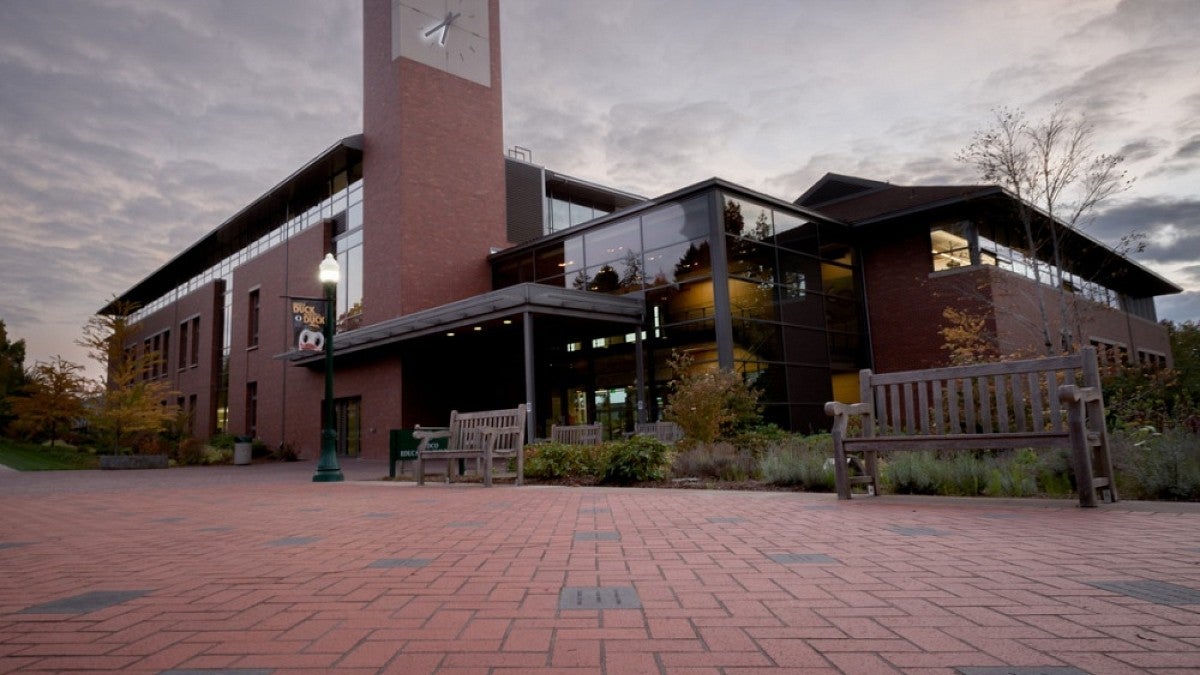In what is believed to be the largest grant ever awarded to the university, the Educational and Community Supports Unit in the College of Education received a $32.6 million grant that allows it to continue its work helping teach students with disabilities.
The UO College of Education is the lead institution in a network that includes three other universities and a total of 11 partner organizations nationwide and whose work supports more than 26,000 schools around the country.
“We’re not just changing the school climate for the better for all students but ensuring students with disabilities are being as or more successful than they have been,” said Kent McIntosh, the unit director and grant’s co-director.

The research and outreach unit plays the leading role in the Positive Behavioral Interventions and Supports network, which emphasizes encouraging good classroom behaviors over punishing undesirable behavior.
“We focus on the positive, on what we want to see as opposed to catching students doing things the wrong way,” McIntosh said.
The unit hosts a website and offers numerous free materials and guidance to educators. Staff then provides advice to state departments of education about how to best use its support based on the resources they have available. It also connects with educators at conferences, such as one it recently hosted in Chicago with more than 2,000 attendees from across the U.S. and U.S. territories, and webinars.
It makes available experts who provide specific support on topics that include school mental health issues, drug abuse and prevention strategies, equity in discipline, and countless others.
“When states and districts have problems, they can get ahold of us,” McIntosh said.
The grant is meant to help get the latest and most effective research into teachers’ hands and allow network members to continue consulting with states and school districts.
“Our job is to provide guidance to those states that have schools that want to identify school safety and social emotional wellness as areas they want to target,” McIntosh said.
MORE COLLEGE OF EDUCATION NEWS
The unit’s foundation is based on researchers looking to support students with special needs by changing school environments when it comes to instruction, the way adults and students interact, and the way students interact with each other.
It’s evolved and adapted to include fast-evolving issues facing schools today, such as addressing the opioid epidemic and cyberbullying.
The behavioral network’s framework has three tiers of learning strategies, from those that can be applied to all students, regardless of need, to smaller groups that may require some additional support, and to the few who need intensive, often individualized, instruction to be successful.
“We have shown tremendous outcomes for students schoolwide,” McIntosh said. “At the same time, we have really good results with schools and districts that can implement systems for the smaller number of students who need some extra attention as well as the few who require more intensive support.”
McIntosh realizes teachers’ time is at a premium, so unit staff emphasizes strategies and interventions that can be put in place with minimal burden as well as those that can be easily adapted.
“We know it can be done,” McIntosh said. “We know it is effective when done well. Our job is to provide support so that any school can implement all three tiers. The biggest thing we want to do is build solutions that can be implemented by typical educators with typical resources and typical district support.”
McIntosh said the longstanding and excellent reputation of the research unit and the college played a big role in landing the grant.
“When people think about behavior support in schools, and when people think about positive behavior support, their first thought is the University of Oregon, and what is the University of Oregon putting out that we can put into practice,” he said.
The College of Education is the lead institution in a network that includes three other universities — the University of Connecticut, the University of South Florida and the University of Missouri — and a total of 11 partner organizations nationwide and whose work supports more than 26,000 schools around the country.
The UO group's current research efforts include looking at alternatives to school suspensions and reducing the racial disproportionality in school discipline. And McIntosh said the demand for its research and the network’s resources continues to grow.
“There’s a really strong emphasis right now on improving school climate and improving student wellness,” McIntosh said. “And it’s not just providing academic supports and a little bit of counseling here and there but really stepping in and changing school environments to make them more positive places.”
—By Jim Murez, University Communications


